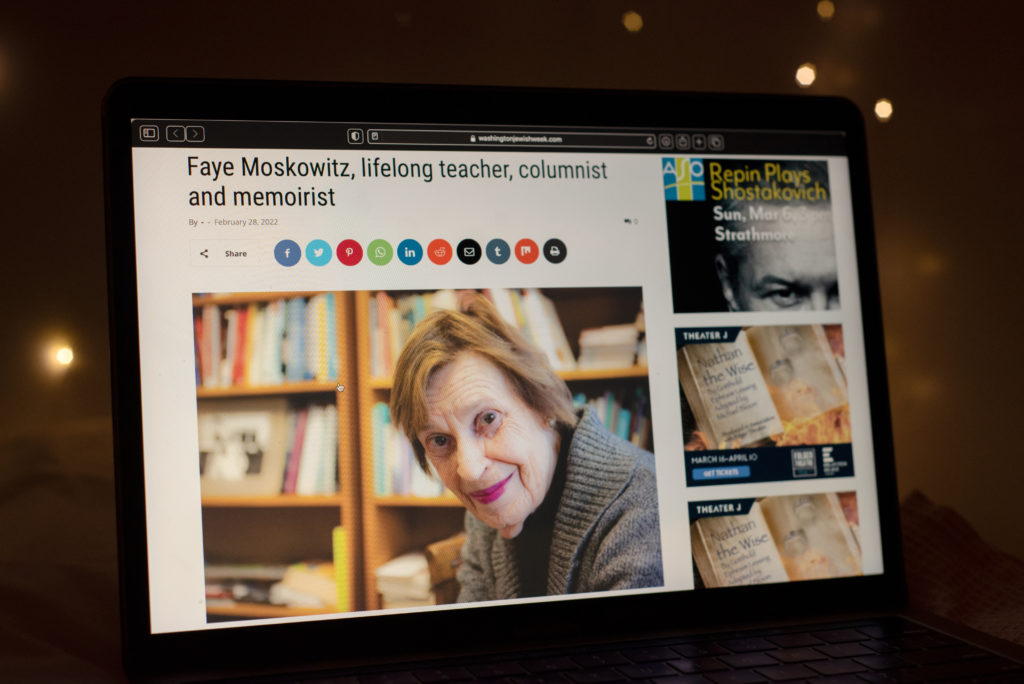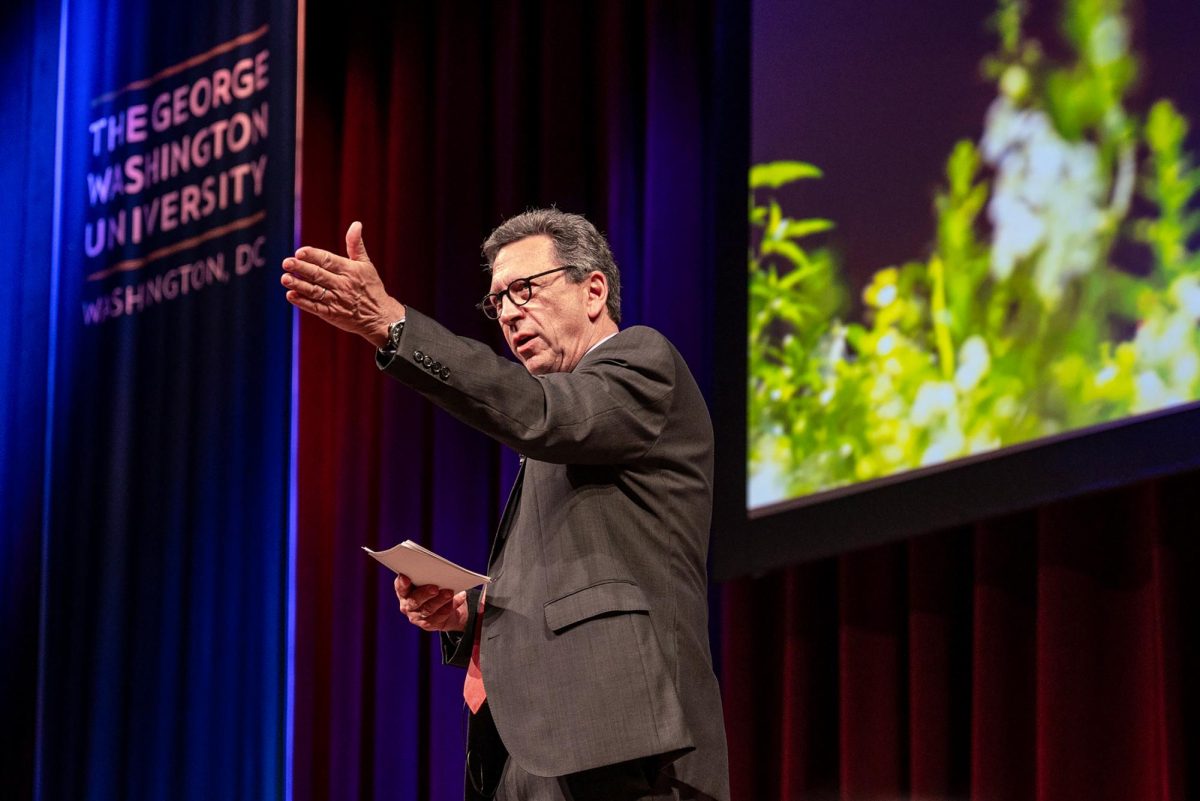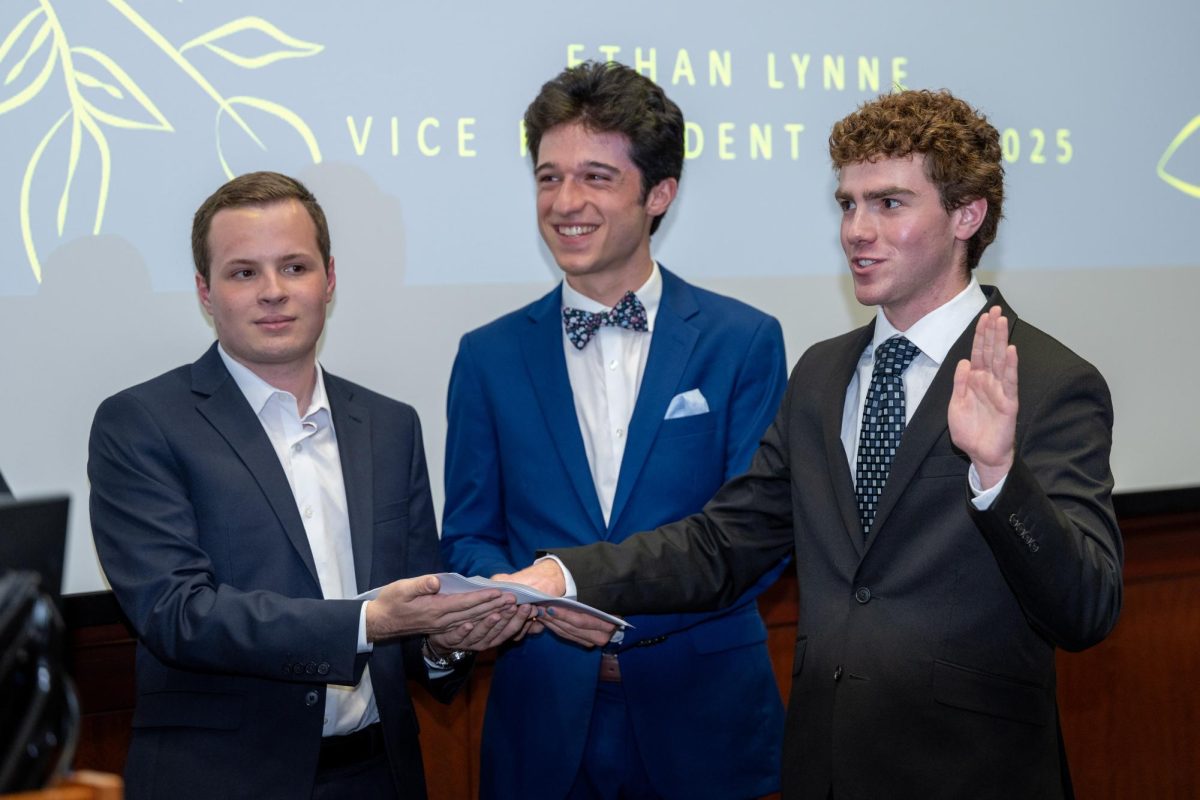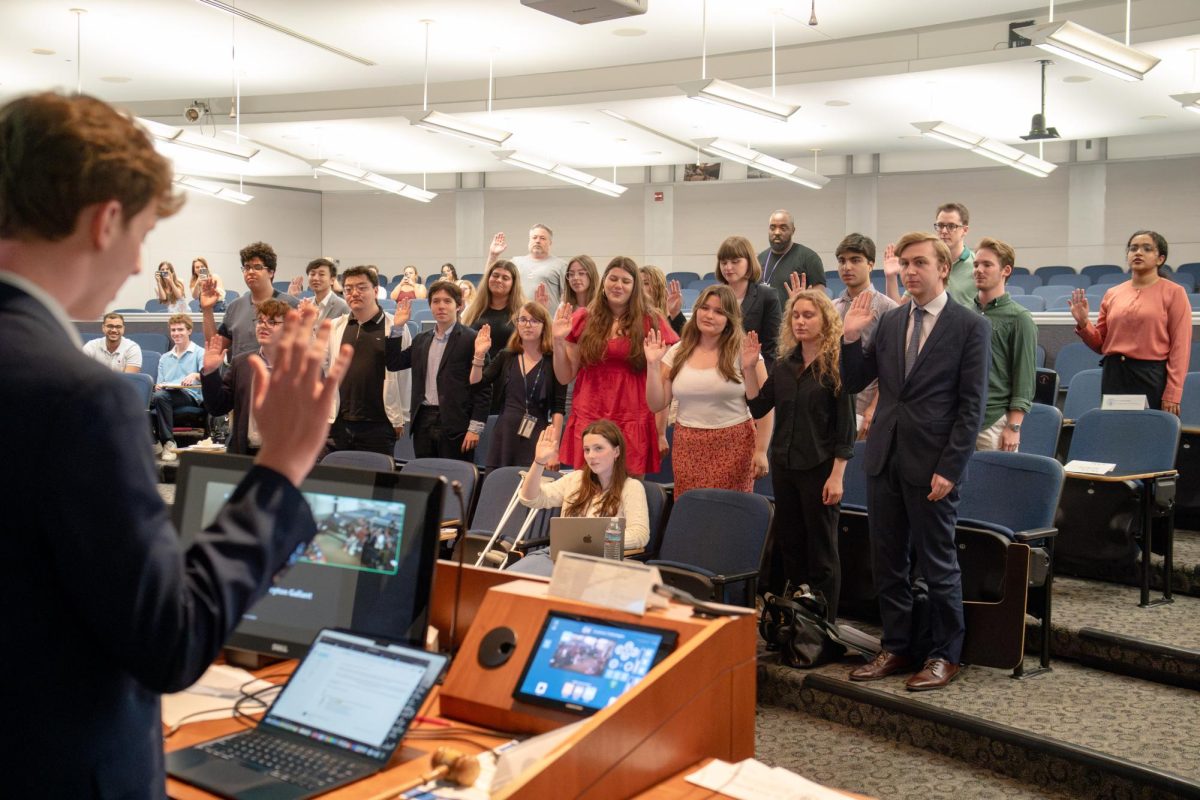Faye Moskowitz, a professor and former chair of the English department, died late last month after more than 40 years at GW. She was 91.
Moskowitz started teaching at GW in 1980, serving as the English department’s chair and the director of creative writing after helping to create the Jenny McKean Moore Professorship in 1976 – a program that allows GW to house a creative writing author for one year to teach at the University. Moskowitz also worked as a columnist for The Washington Post and The New York Times and appeared as a frequent guest on NPR’s “All Things Considered.”
Faculty who knew Moskowitz said she was a kind and caring figure whose writing talent was only matched by her devotion to her students and her Jewish heritage.
Moskowitz grew up in a Jewish household in 1930s suburban Detroit and married her late husband, Jack Moskowitz, in 1948 before she moved to D.C. in 1962. She began her time at GW as a student in 1965, receiving a bachelor’s degree in 1970 and eventually completing her doctorate coursework in English and American literature.
Moskowitz created the English course Jewish Literature Live! in 2009, a class that she taught focusing on Jewish writers throughout history and hosting juggernauts in American literature like authors Fran Lebowitz and Phillip Roth. Moskowitz also served as the poetry editor of Moment Magazine, which focuses on American Jewish culture and life, until 2019.
Maria Frawley, the chair of the English department, said Moskowitz was loved and admired for her dedication to students and her Jewish Literature Live! course that garnered widespread support and interest among the Jewish community on campus. She said despite Moskowitz’s academic achievements, they can’t begin to “really capture” Moskowitz’s passion, legacy and spirit.
“We were heartbroken to learn of Faye’s passing,” Frawley said in an email. “She had a lasting influence on many generations of students who praise her humane and wise guidance and credit her with helping them develop as writers.”
Frawley said Moskowitz’s family held two shiva services – a seven-day mourning period in Jewish tradition held by the family of the deceased – the weekend after her death, which multiple faculty and former students attended.
Faye is survived by her four children, three grandchildren and a great-granddaughter.
Shoshana Grove, Moskowitz’s daughter, said Moskowitz was “an amazing mother” who loved and supported her children, grandchildren and great-grandchildren dearly.
“If something sad happened to someone she knew or someone she was talking with, or somebody got sick or someone died, she would physically feel it,” Grove said. “This is how empathetic she was.”
She said Moskowitz, who taught until she was 88, retired from teaching to care for her husband Jack, who died in 2020. Grove said her parents had an “intellectual relationship” and often read books and articles to each other into their later years.
“She was so devoted to my dad,” Grove said. “Otherwise I think she would have kept working.”
David McAleavey, a retired professor of English who joined the department in 1974 when Moskowitz was a doctorate student, said Moskowitz was “unique, humble, funny and bold.” He said she lived a “remarkable life” and praised her efforts in helping to create the Jenny McKean Moore Professorship in 1976, recalling that she pushed multiple professors to advocate for the program to then-University President Lloyd Elliott.
McAleavey said Moskowitz was a “highly competent” colleague whose qualifications in writing and literature allowed her to become the first director of creative writing at GW, a position she used to expand the course options and bolster the status of the department nationally.
“Her enormous empathy and her political skills – chiefly an ability to avoid making enemies while always building friendships and bridges – enabled her to become chair, a position which she managed with tremendous skill,” McAleavey said. “Almost every member of the department felt that their working experience improved during the years she was in that role.”
Holly Dugan, an associate professor of English, said Moskowitz inspired her students and colleagues with her kindness and spirit. She said Moskowitz’s writing and attitude built connections between students and faculty.
“Faye’s love for her family and her students inspired us all,” Dugan said in an email. “She built whole worlds of connection through her gifted writing, her inspired teaching, her fierce advocacy and her tremendous charm. GWU – and D.C. – will not be the same without her.”
Jane Shore, a professor of English, said she first met Moskowitz during an interview as she was applying to serve in the 1989-1990 Jenny McKean Moore position. Shore said Moskowitz’s devoted and caring presence within the creative writing program helped foster a sense of “camaraderie” among faculty in the English department.
“Everybody got along great,” Shore said. “And that, I think, was because Faye herself was such a welcoming presence and an inclusive presence that she both hired people who were like that but also engendered that in people.”
Allyson Stokes, an adjunct professor of theater and dance, said Moskowitz was a “remarkable person and educator.” Stokes said Moskowitz would open her own home to host parties and gatherings, often inviting the entire English department.
“She was authentic, kind and had a deep capacity for truth-telling.” Stokes said in an email. “Her decades of dedication to teaching is truly awe-inspiring, and those of us who were fortunate to be in her orbit were blessed indeed.”
Ormond Seavey, a professor of English, said Moskowitz was a “greater writer” who was particularly skilled at turning elements from her own life into material for her writing. Seavey said students admired Moskowitz as a grandmother figure.
“They saw her as a kind of grandmother – the Jewish grandmother they would have liked to have,” Seavey said.








